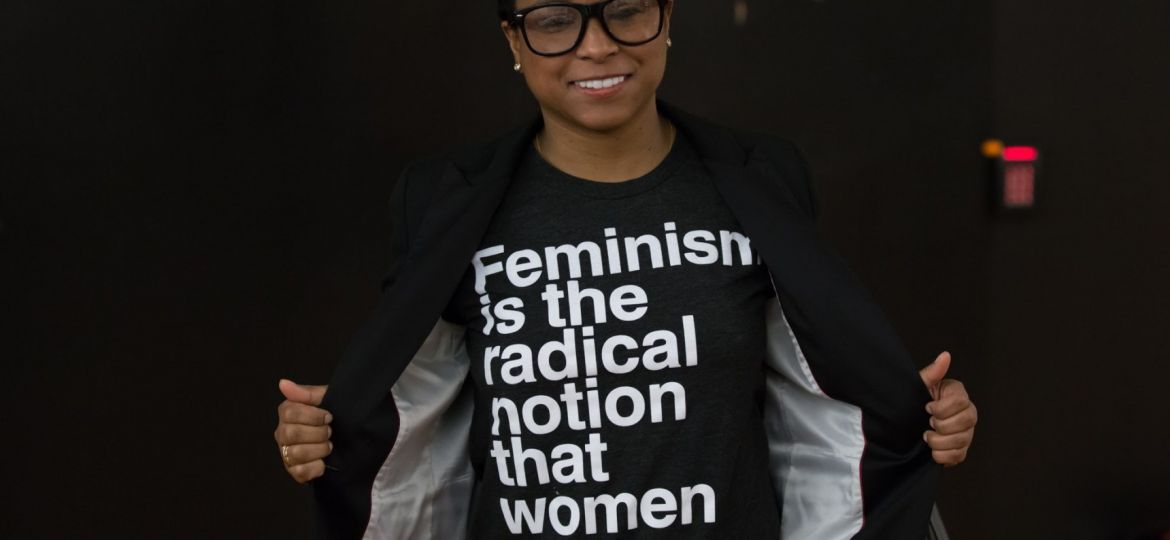
Meet Minda Harts: super woman, author, professor, speaker, podcast host, New York City resident, curiosity enthusiast. I came to know Minda through chatter in the HR world and became enthralled with her work. She came along at a time when I needed some new perspective, and for that I will be forever grateful. Minda is doing groundbreaking work at her company, The Memo LLC. Her career development company prepares women of color (WOC) for a seat at the table. She is a force of nature when it comes to giving a voice to WOC and working towards equality. Case in point: roughly 11% of WOC hold a managerial position. Those numbers dwindle as the ladder gets higher.
I’m quite excited for Minda’s debut book, The Memo. It will be released on August 20th, and is available for pre-order. In Minda’s words, The Memo is: “Lean In for women of color: A no-BS look at the odds stacked against women of color in professional settings, from the wage gap to biases and micro-aggressions, with actionable takeaways.”
I hope you’ll join me in devouring Minda’s book and learning a new perspective. For now, enjoy my interview with Minda!
What called you to write The Memo? What is your hope for how it shapes conversations and actions within the corporate and working world?
It was in 2013 and I was experiencing a lot of things that were new to me, like negotiating salaries, moving to a new city, and all those career-related things. I was doing a lot of Googling around that time. I remember thinking, these articles are helpful, but I need something a little more tangible. I would like to know what other women of color are experiencing; be it good or bad, I could learn from them. And that’s what sparked The Memo. I wanted a platform where women of color could hear real experiences and get real advice from real women regarding their career development. I also wanted a community that fosters diversity, because all women don’t experience the workplace the same.
My hope is that non-women of color will rally behind this book as they did for Lean In and Girl Boss, to name a couple of other career books. The future of work requires an investment in all talent. Wouldn’t you be a better colleague if you understood what it’s like for someone who doesn’t look like you to show up in the office every day? I hope The Memo will bridge the empathy gap in the workplace and foster hard conversations that lead to healing.
What advice would you give to a non-WOC wishing to be more inclusive or open up their perspective about WOC?
Be open and listen with your heart. The voices of women of color at work have been inaudible for so long. It’s time for you to listen and educate yourself on how to be a true ally; in action and not just words.
How do you keep going when the odds are stacked against you? What keeps you curious?
My curiosity is larger than my fear. I truly believe in equity. And when we achieve equity–everyone has skin in the game. We don’t yet have that and that is what keeps me fighting for it.
Who are your shotgun riders? I.e. Who are the people who help you see different perspectives about yourself and the world?
I love the power of social media, specifically Twitter. I get a chance to “listen in” on various perspectives and it helps raise my level of consciousness and requires me to do some soul searching on my ideologies. These are people from the smallest cities to oversees. I become a better person as I challenge myself to thought-provoking content. So, not one particular person but a community of thought provokers.
What is your hope for change? Our political and social climate is so divisive right now. What is your vision for how that changes?
I recently spent 10 days on a Civil Rights tour in the deep South. It pains me to see much of what freedom fighters were asking for–equality and respect; is the same thing we are asking for so many decades later. It hurts, but I believe the band-aid has been ripped off and we might just be able to reconcile if we remain open to some ugly truths.
What surprised you most that you discovered during your research and writing?
That so many women of color felt isolated. When you are working in isolation you don’t have anyone to talk to or validate your feelings or experiences.
I’m passionate about helping leaders to move from the land of good intentions to the impact they are making. In your experience, what advice do you have for leaders to ensure they are making the impact they intend?
Leaders have to learn to make decisions that don’t just affect their bottom line but future generations. We can’t afford to have any more leaders who spout off rhetoric, we need leaders that understand that diversity and inclusion is an action statement.


Loved this.